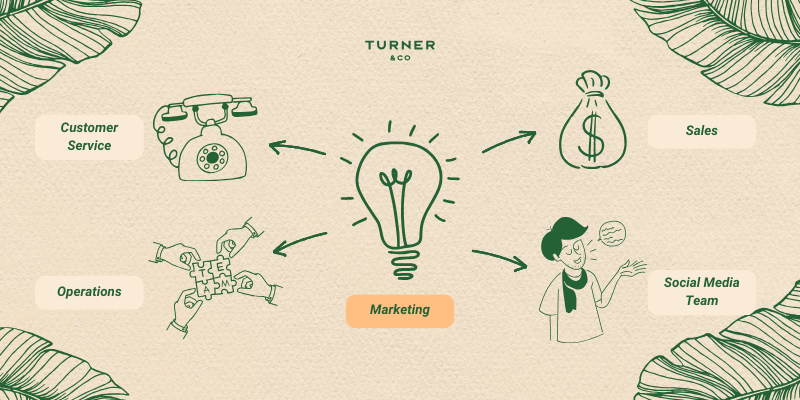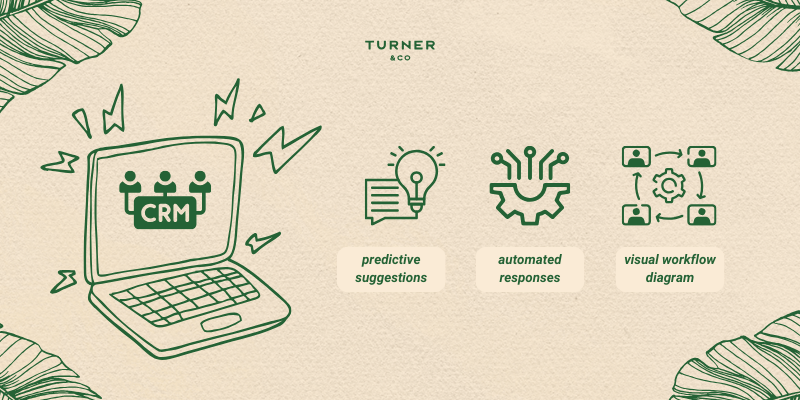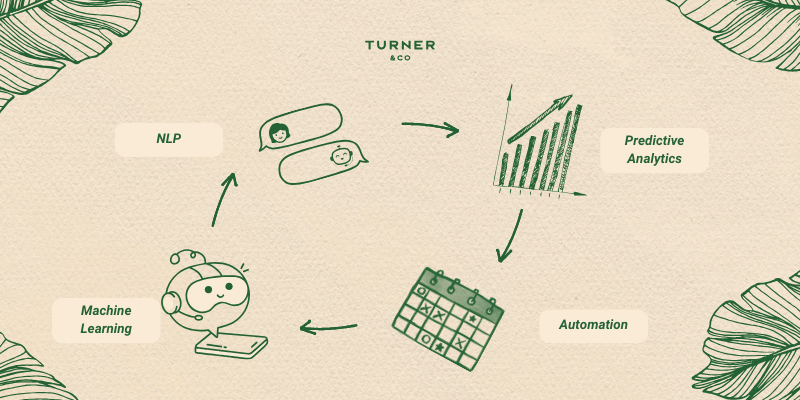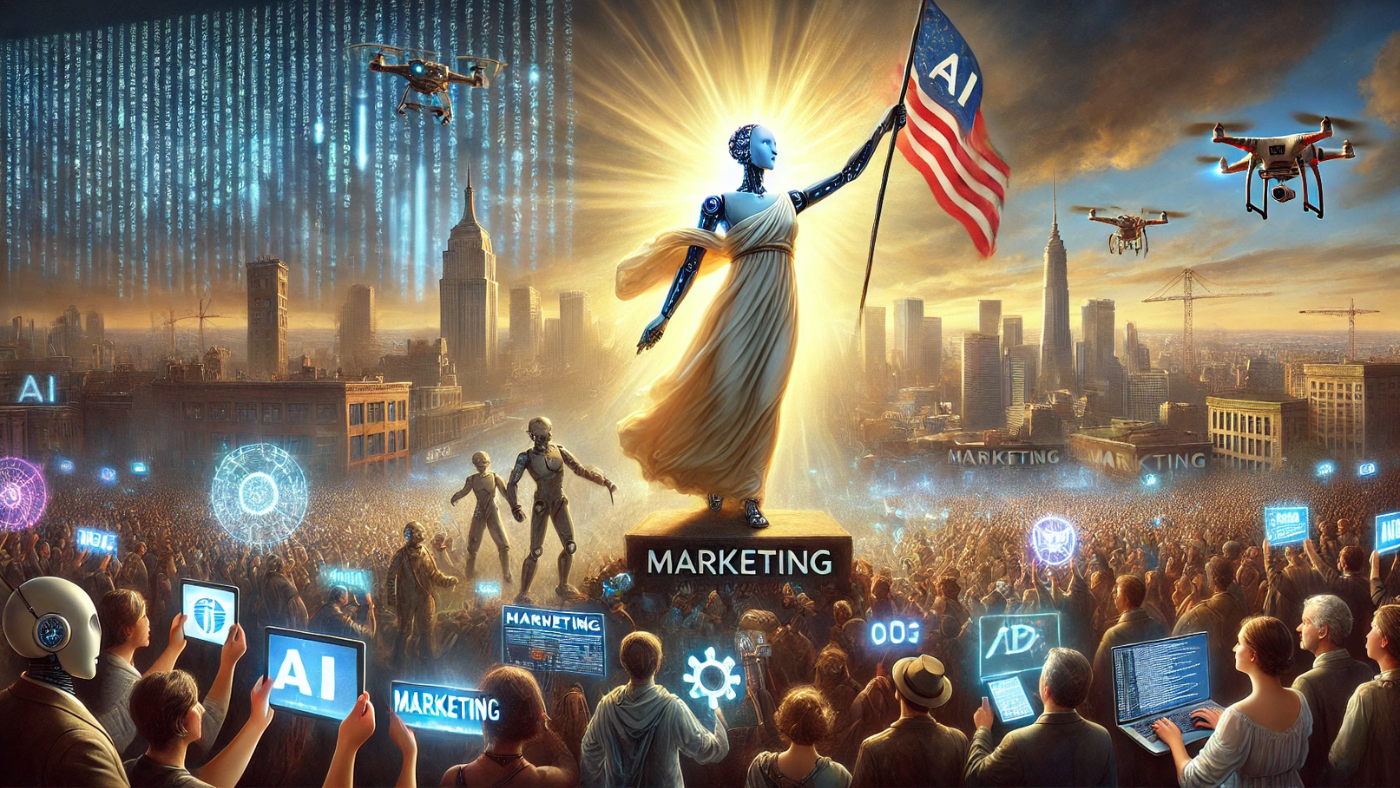It can be exhausting being in marketing right now. Every day, there’s a new trend to keep up with, another must have tool to explore, data to stay on top of, and a never ending stream of updates from platforms like Meta that change the game yet again. It’s a lot. But here’s the good news: AI doesn’t have to add to the overwhelm it can actually help lighten the load and amplify what marketing teams already do best.
Marketing teams are uniquely positioned to lead AI integration across an organisation. With the ability to transform customer insights into actionable strategies, they’re the natural choice for guiding AI adoption in ways that increase engagement, improve ROI, and create a more connected customer journey. In this guide, we’ll show why marketing should drive AI integration, introduce essential AI tools that empower teams, and explain how consistent AI processes can streamline operations across the business.
No fluff, no added pressure – just practical ways to make AI work for you.

Why Marketing is Best Positioned to Lead AI Integration
Marketing teams are pros at using data to create strategies that get results. With AI, they can take things further by predicting trends, automating routine tasks, and tailoring content to hit the right audience at the right time. AI isn’t about starting from scratch, it’s an enhancement of what marketers already do brilliantly.
And because AI can feel overwhelming, marketing’s flexibility and creativity are valuable assets.
Used to experimenting and refining, marketers can set practical, realistic AI standards that everyone can get behind. When marketing drives AI adoption, it ensures that customer centred, ethical practices are front and centre.
Marketing teams are often early adopters of new technologies, driven by their need to innovate, experiment, and deliver measurable results. Unlike other departments, marketing operates within a constant cycle of analysing trends, testing tactics, and refining strategies based on deep data insights. This combination of agility and accountability positions marketing as the ideal leader for AI integration. By leveraging AI tools, marketers can enhance their ability to predict trends, personalise campaigns, and optimise outcomes, all while navigating the scrutiny of balancing creative vision with tangible performance metrics.
For new hires and talent, a marketing-led AI initiative also signals a culture that values innovation and customer insight, attracting those keen to work with cutting-edge tools.

Essential AI Tool Categories and How They fit Into a Marketing-Led Strategy
Choosing the right tools is essential to making AI work for marketing’s goals without adding to the chaos.
Here’s a breakdown of key AI tools that help marketing teams deliver measurable results and reinforce their role as AI leaders.
1. Natural Language Processing (NLP) : Enhancing Customer Interaction
What It Is : NLP tools, like chatbots and AI-driven content generators, allow brands to communicate naturally with customers, offering instant, real-time responses.
Why It Matters for Marketing : Marketing is all about building relationships. NLP tools empower your team to interact naturally, respond to customer needs on the spot, and reflect your brand’s voice.
Use Case : An NLP chatbot can handle common questions on your website, providing instant support for customers while freeing up your team to focus on complex inquiries and strategy.
2. Natural Language Processing (NLP) : Enhancing Customer Interaction
What It Is : Predictive analytics tools use data patterns to anticipate future customer behaviours, helping teams personalise campaigns, improve content targeting, and optimise ad spend.
Why It Matters for Marketing : Automating repetitive tasks helps the team maintain a steady output without compromising quality, giving marketers the time to focus on creativity and strategy.
Use Case : Predictive tools can identify which audience segments are most likely to engage with a specific product, allowing marketers to focus resources where they’ll make the biggest impact.
3. Automation and Workflow Optimisation : Streamlining Operations
What It Is : AI-powered automation tools manage repetitive tasks, from email sequencing to social media scheduling, freeing up marketers to focus on high-value work.
Why It Matters for Marketing : Automating repetitive tasks helps the team maintain a steady output without compromising quality, giving marketers the time to focus on creativity and strategy.
Use Case : An AI-powered scheduling tool posts on social media at peak engagement times, expanding reach and impact while freeing up time to refine campaigns.
4. Machine Learning and Custom Business GPTs : Personalising at Scale
What It Is : Custom Business GPTs and machine learning models can be trained on company-specific data, making it possible to deliver personalised responses that feel unique to your brand.
Why It Matters for Marketing : With access to customer data, marketing teams can create AI tools that reflect the brand’s values and tone, allowing interactions to feel personal even at high volumes.
Use Case : A custom GPT model generates personalised email responses based on customer inquiries, allowing your team to engage more people without sacrificing that personal touch.

Integrating AI with Existing Systems : A Smooth Path to Adoption
AI doesn’t mean ditching the tools you’ve got—it means enhancing what’s already working.
Marketing can introduce AI to CRM systems, marketing automation platforms, and analytics dashboards, showing how AI can add value without disrupting workflows. This approach helps the team see immediate wins, like quicker data analysis or automated responses that free up time for more strategic tasks. When other departments see these benefits, AI adoption becomes less about tech for tech’s sake and more about teamwork.
Building a Unified AI Strategy : Policies, Training, and Consistency
To make AI work across the board, it has to feel like a part of the company’s DNA. Here’s how marketing can help establish a unified AI strategy that’s practical, ethical, and aligned with the brand’s values:
Establish Clear Policies : A policies ensure everyone understands the standards for ethical, secure, and consistent AI use. Marketing can set this standard, guiding other departments as they adopt AI.
Structured Training : With marketing-led training, other teams see that AI isn’t about replacing their skills but enhancing them. By demystifying AI, marketing can help everyone feel comfortable using it in daily tasks.
Creating a Learning Culture : Regular workshops, resource-sharing, and best practices help the whole organisation stay up-to-date.
Acknowledging the Learning Curve : Embracing AI may require some initial adjustment training, adapting workflows, and perhaps a few growing pains. But once in place, these tools are designed to streamline your team’s workload and maximise impact. Think of it as an investment that quickly pays off in time saved, efficiency gained, and new ways to connect with customers.
Why AI as Standard Operating Procedure is Key to Long-Term Success
Making AI part of Standard Operating Procedures (SOPs) magnifies the benefits. Consistent AI practices lead to predictable results, scalable processes, and a shared understanding of AI’s role across departments.
Businesses that embed AI into SOPs are better equipped to :
Deliver Reliable Results : Consistent AI use produces high-quality outcomes that build trust.
Scale Seamlessly : SOPs make it easy to expand AI use as the business grows, without extensive retraining.
Stay Competitive : A strong AI foundation ensures quick adaptation to new trends, keeping the organisation agile.
Marketing’s Role in Leading the AI Transformation
By leading AI integration, marketing doesn’t just enhance its own performance – it sets a positive example for the entire organisation. With tools that bring predictive insights, seamless customer engagement, and streamlined workflows, AI can transform not only marketing but also the company’s approach to sustainable growth.
AI isn’t just another tool in the kit—it’s a smarter way of working. With marketing in the lead, AI can drive meaningful, lasting change, positioning your business for future success. Ready to explore how AI can support your brand? Let’s chat – no fluff, just straightforward, actionable insights.
